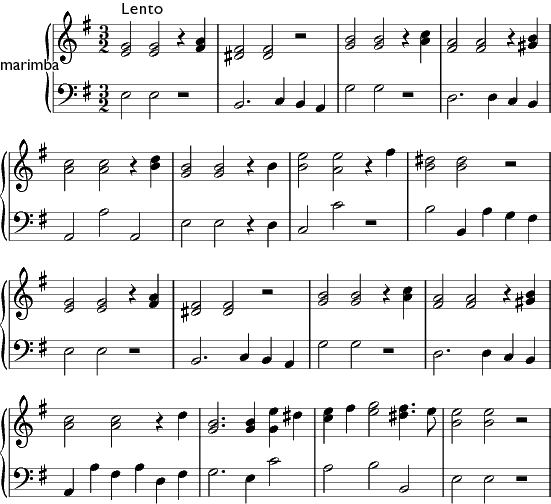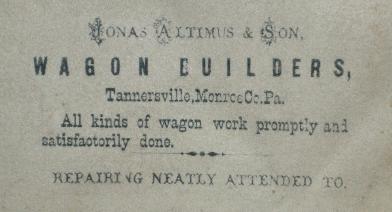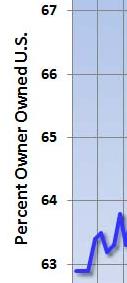|
I like that a Russian word can start with mgn, like мгновенный (mgnovyenniy, "instantaneous"). I like that a single Russian letter, щ, transliterates as shch (seven letters if transliterating into German: schtsch). But apparently Russian is out-clustered by Georgian, which has words like (or perhaps only just the one word) გვფრცქვნი (gvprckvni, "you peel us"). Until now, this blog's comment system had no security: no registration, no CAPTCHA, no moderation, no cookies. My thought was, let's have an open system and see how long before it gets abused. How long turned out to be almost three years. Spam comments started trickling in a few months ago, gibberish text that made me wonder what the point was. That warmup phase lasted a while, followed by classic spam ads formulaic enough that I installed a stopgap ad hoc filter. Then their form mutated, and the tempo increased--to where I got dozens of spam comments in one day (yesterday). Filtering by IP address is not an option, as spam continues to pour in from new addresses scattered across the world. As of today, my comment form sports a (not very secure but easily improved if need be) CAPTCHA. I don't like CAPTCHAs, but of all the alternatives it is the best at preserving the openness I want to provide: anyone can comment without registering first, and comments are published immediately. If you encounter any problems with the system, please let me know. To state the obvious, it sucks that this measure is necessary. But it could have been worse. Almost three years of running unprotected is more than I would've guessed I'd get. From an "about Twitter" page: How do you make money from Twitter?That's a bit more than 140 characters. From an interview two months ago:
There's something to be said for challenges of all kinds, be they engineering or marketing or how-can-we-make-a-business-out-of-this challenges. And it's OK to take on hard problems. I've certainly failed a fair amount. But I am amused, kind of, by public relations.
 Stanley Kubrick used this piece by Handel in Barry Lyndon
(in various other arrangements).
I was happy to see it could be adapted for marimba.
In particular, I'm glad it works OK in an arrangement for
a player whose left hand is not coördinated enough
to hold two mallets:
Stanley Kubrick used this piece by Handel in Barry Lyndon
(in various other arrangements).
I was happy to see it could be adapted for marimba.
In particular, I'm glad it works OK in an arrangement for
a player whose left hand is not coördinated enough
to hold two mallets:
Handel's father had wanted him to be a lawyer. Barry Lyndon's a good film. Tommy recommends. Other passions besides self-esteem are common sources of error; of these perhaps the most important is fear. Fear sometimes operates directly, by inventing rumors of disaster in wartime, or by imagining objects of terror, such as ghosts; sometimes it operates indirectly, by creating belief in something comforting, such as the elixir of life, or heaven for ourselves and hell for our enemies. Fear has many forms--fear of death, fear of the dark, fear of the unknown, fear of the herd, and that vague generalized fear that comes to those who conceal from themselves their more specific terrors. Until you have admitted your own fears to yourself, and have guarded yourself by a difficult effort of will against their myth-making power, you cannot hope to think truly about many matters of great importance, especially those with which religious beliefs are concerned. Fear is the main source of superstition, and one of the main sources of cruelty. To conquer fear is the beginning of wisdom, in the pursuit of truth as in the endeavor after a worthy manner of life.I don't plan to have children, and although I'm at peace with that choice I still sometimes imagine what it would be like. I like teaching, and there's so much a parent gets the opportunity to teach--if they have patience, of course. But there are aspects of being a parent that I would not relish, for much the same reasons why I was an engineer rather than a manager. Setting and enforcing rules, important though it is, does not come naturally to me. I would also have a hard time letting a kid of mine do dangerous things. I know how bad my judgment was when I was a teenager; I'm lucky I made it through alive. I remember being frustrated as a kid that my dad wouldn't let me use power tools for a long time. I got to use a table saw in school before my dad let me use the one in our basement (the one that's now in my shop here). But now, 37 years later, I understand. I'd be terrified to let a kid use one. A table saw "could be the most dangerous piece of equipment that a woodworker would ever use" -Wikipedia.  My not being a parent means I can't pass on to
progeny tools that have been in the family for generations (not that such
progeny would necessarily be inclined to use them, but that's another story).
I call your attention to the calling card.
Jonas, my great-great-grandfather, lived from 1831-1890;
his son Otis from 1862-1955.
My not being a parent means I can't pass on to
progeny tools that have been in the family for generations (not that such
progeny would necessarily be inclined to use them, but that's another story).
I call your attention to the calling card.
Jonas, my great-great-grandfather, lived from 1831-1890;
his son Otis from 1862-1955.
 Consider this excerpt of a graph of the homeownership rate in the USA,
from calculatedriskblog.
Not only is the y-axis labeled meaninglessly ("owner owned" is tautological),
but it's not even obvious what it's supposed to mean.
(What is homeownership rate? Is it how many families own homes, how many
homes are owned by their occupants, or ... ? The answer is below.)
Consider this excerpt of a graph of the homeownership rate in the USA,
from calculatedriskblog.
Not only is the y-axis labeled meaninglessly ("owner owned" is tautological),
but it's not even obvious what it's supposed to mean.
(What is homeownership rate? Is it how many families own homes, how many
homes are owned by their occupants, or ... ? The answer is below.)
The graph was reproduced here and here, showing that even big-name bloggers don't read what they post, or don't care if it's nonsensical. The graph is based on data from the US Census Bureau, where "homeownership rate" tells how many homes are owner occupied--as a percentage not of the total number of units, but of the non-vacant units. If you guessed that, I'm impressed.  Subjective evaluations are notoriously difficult to control.
Lots of potential biases and all that.
Subjective evaluations are notoriously difficult to control.
Lots of potential biases and all that.
If you know the difference between good tea and so-so tea, you may appreciate the thoroughness of ISO Technical Committee 34 (Food products), Sub-Committee 8 (Tea), which gave us ISO 3103--an international standard method for brewing tea for "examination of the organoleptic properties".
I'm left wondering if this is simply redundant, or if it's meant as a koan, or if gay is intended as the opposite of sullen. Television started out wireless and telephones started out wired. For many people it's now the reverse. A few things that used to be true about software are now true about hardware, and vice versa. When I first got into computers, CPUs had lots of switches and flashing lights, whereas software was generally unadorned. Nowadays, a computer has lights just for power and maybe disk or network activity. To make up for this, we have software that flashes, with as simple a function as copying a file heralded by a silly animation of pages flying from one folder to another. Hardware used to be flaky. A computer contained dozens if not hundreds of circuit boards. One was accustomed to hearing "the computer is down". Software used to be fairly reliable (partly because it wasn't so ambitious). Nowadays CPUs are pretty reliable, but one is used to programs that hang or crash every so often (Firefox comes to mind). |

 ISO 3103 specifies not just quantities of tea and water and milk and
brewing temperatures and times, but also the pot to brew in,
"of white porcelain or glazed earthenware, with its edge partly serrated
(see Figure) and provided with a lid, the skirt of which fits loosely
inside the pot."
ISO 3103 specifies not just quantities of tea and water and milk and
brewing temperatures and times, but also the pot to brew in,
"of white porcelain or glazed earthenware, with its edge partly serrated
(see Figure) and provided with a lid, the skirt of which fits loosely
inside the pot."